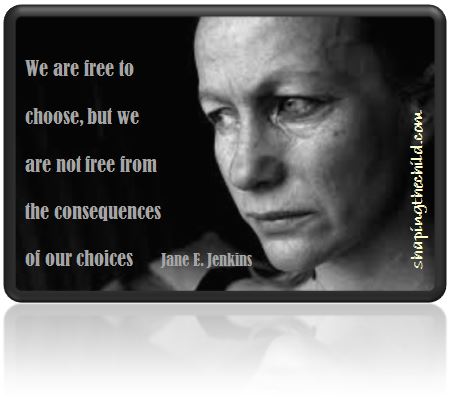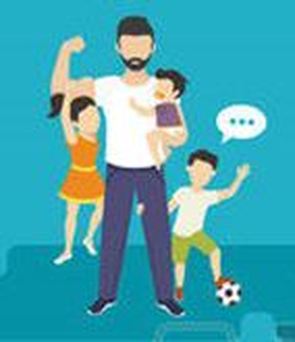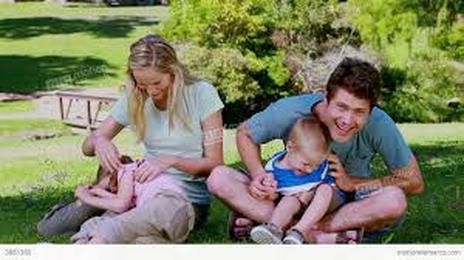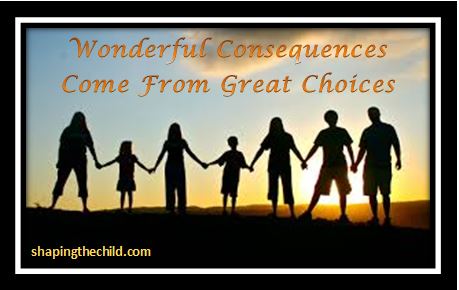I hate to say it but I honestly have become a walking encyclopedia, concerning statistics anyway. I realize that may sound braggadocious and anyone that knows me will probably spew their drink right out of their mouth when they read this sentence because they know I am no encyclopedia, of any kind.
|
Because of the tons of hours of research I viewed while writing the book, statistics go off in my head wwwaaayyy too often. I admit I am passionate about getting the info and stats out there to warn parents and they need to know because these statistics are downright scary! What kind of a person would I be if I know something that is so detrimental to the well-being of your children and families and not let you know? I am determined to do all in my power to help people know what I have learned. (That may also explain why I see people running away when they see me coming!)
I think I finally have figured it out, and it really is quite simple if we just look backwards!!!
|
I have figured out that if people will learn and understand the consequences of certain actions then it will be much easier for them to makbetter choices. Too often we feel the negative consequences of an action after the fact rather than learning about (and teaching our children) the consequence of a choice before.
Remember when you saw the speaker who was quadriplegic who came to your high school to tell students about the horrific car wreck he had due to drunk driving? I am sure it had an impact on at least some of the youth, for a while anyway.
As parents, we know that too many youth believe they are invincible! Don’t let them get by with that, because you know it is their adolescent brain speaking! J. Anderson, the author of The Teen-Age Brain: Under Construction writes, “Because the hippocampus or memory center of the brain is immature, it is very susceptible to the effects of alcohol thus hindering developing memories which impacts learning. Binge drinking is very dangerous because of the developing hippocampus.”1
Parents can help by teaching children about the poor judgement often made because of their adolescent brain which is still under construction! And that can be the case from 10-28 years old! That is a long time to be so susceptible to poor choices!
I digress, now back to the speaker. Every one that was listening to the speaker likely took away a different message due to their own perspective. The youth who had alcoholic parent(s) probably had a different reaction than the youth who had a family that didn’t drink at all! I am unsure which child would have been more terrified! Hopefully they were both affected!
The speaker probably talked about the consequences of his poor choices and hoped to make a difference in the future choices of those students listening. His motivation was to help those youth make a better choice and therefore have a better consequence than he did.
Proactive parents will teach their children about the consequences of many behaviors long before they are in the middle of making choices. Proactive parents will also know who their children are with, what they are doing, where they will be, when they will be home, AND that their parents love them and that is why there are so many questions! Because of that, they will feel secure.
The consequences of all of the material I researched during my schooling, writing the book and even more research while getting this website going has caused me to be extremely passionate about consequences. My goal is to bring more motivation through information. My hope is that parents will be more aware, have serious talks with children so they, too, will understand the possible detrimental effects of their choices, which ultimately effect the whole family.
Remember when you saw the speaker who was quadriplegic who came to your high school to tell students about the horrific car wreck he had due to drunk driving? I am sure it had an impact on at least some of the youth, for a while anyway.
As parents, we know that too many youth believe they are invincible! Don’t let them get by with that, because you know it is their adolescent brain speaking! J. Anderson, the author of The Teen-Age Brain: Under Construction writes, “Because the hippocampus or memory center of the brain is immature, it is very susceptible to the effects of alcohol thus hindering developing memories which impacts learning. Binge drinking is very dangerous because of the developing hippocampus.”1
Parents can help by teaching children about the poor judgement often made because of their adolescent brain which is still under construction! And that can be the case from 10-28 years old! That is a long time to be so susceptible to poor choices!
I digress, now back to the speaker. Every one that was listening to the speaker likely took away a different message due to their own perspective. The youth who had alcoholic parent(s) probably had a different reaction than the youth who had a family that didn’t drink at all! I am unsure which child would have been more terrified! Hopefully they were both affected!
The speaker probably talked about the consequences of his poor choices and hoped to make a difference in the future choices of those students listening. His motivation was to help those youth make a better choice and therefore have a better consequence than he did.
Proactive parents will teach their children about the consequences of many behaviors long before they are in the middle of making choices. Proactive parents will also know who their children are with, what they are doing, where they will be, when they will be home, AND that their parents love them and that is why there are so many questions! Because of that, they will feel secure.
The consequences of all of the material I researched during my schooling, writing the book and even more research while getting this website going has caused me to be extremely passionate about consequences. My goal is to bring more motivation through information. My hope is that parents will be more aware, have serious talks with children so they, too, will understand the possible detrimental effects of their choices, which ultimately effect the whole family.
The other day I thought to myself, “No one would do this (behavior) if they truly understood the tragic consequences that could come from it.” Admittedly, some unexpected negative consequences occur simply because it’s life. As parents we want our children to make good choices in their lives.
The question I have for you is… “Have they been taught how?”
The question I have for you is… “Have they been taught how?”
|
This will help you identify any behaviors of which you are not aware and can open the door to have a good discussion with your family. Are you familiar with the term “When you pick up one end of the stick, you pick up the other.”? You might want to have a family discussion and put a piece of paper on each end of a stick, one with the word CHOICE and the other with the word CONSEQUENCE. Then challenge them to pick up one end of the stick without affecting the other. Hopefully this will be the beginning of some great conversations!
|
Listed below are the consequences of nine different addictions. I would like for you to see if you can identify them.
The options are: Gaming - Social Media - Drug - Alcohol - Pornography - Gambling Sexual Promiscuity - Nicotine and Anger (yes, anger can be considered an addiction due to the same hormones released that create additions) You can check your answers at the end of this article.
|
1. Negative effects on social, family, financial, marriage, employment, withdrawal, stealing and/ or prostitution for cash due to addiction. Health problem, such as liver damage, brain cell damage.
|
2. Problems with social and sexual situations, attachment disorders, relationship problems, extreme addiction due to natural hormones, possible legal problems due to risk for sexual abuse.
|
3. Personal relationships, preoccupation, lack of control, loss of time, money problems, physical problems such as obesity, sleep disorders, eating irregularities, poor personal hygiene, mixed feelings of excitement and guilt.
|
|
4. Depression, attachment disorder, social and relationship problems, physical abuse. Health issues due to diseases, drug and alcohol abuse. May have legal problems du.e.
|
5. Negative effects on social, family, financial, marriage, work, lack of control, health problem – liver damage, brain cell damage, stealing and/ or prostitution for cash, withdrawal. Legal problems due to illegality.
|
6. Addiction is progressive and can result in abuse, disability or premature death. Increased risk of divorce/ loss of family, job, health, friends, money and health, guilt and shame.
|
|
7. Depression, mood disorders, compulsive behaviors, anti-social personality, increased alcohol and drug abuse, poor mental and physical health, loss of job, failed or damaged relationships and marriages, financial devastation, bankruptcy, fraud and check forgery, theft of property for cash.
|
8. Increased risk of cancers of every kind, osteoporosis, autoimmune diseases, lung problems, damages immune system, heart, vision, basically every part of the body due to toxins. This is an extremely addictive choice and is harmful to every part of the body.
|
9. Less satisfaction with life, social and communication problems, work or school problems, lack of physical exercise, carpal tunnel syndrome. Increase in alcohol and drug abuse, false sense of reality, restlessness, increase in bullying, decrease in concentration.
|
One comment I always told my children is that they will never be an alcoholic (or addicted to any kind of addiction if they never do it the first time.) I think it is great that President Trump got that message too! Unfortunately, his motivation to make that choice was due to losing his brother to alcoholism. I hope that people in this country apply and spread that message!
We all have “if only” moments in our lives. I taught our children that the two words “if only” can be very painful. Let’s teach our family that we can all make better choices when we are familiar with the consequences and then do all we can to avoid the “if only” moments in our lives.
If you have adolescents in your life, please learn about how the adolescent brain works. You can follow the link at the bottom of the page. It is an excellent article and well worth you time to read it. I remember having an “Ah ha” moment when I learned that the age of adolescents begins around 10 years of age and ends as late as around 28 year of age! That fact alone explains a lot!
Addictions are certainly one of the most devastating consequences of poor choices, so if you will continue to watch for my next articles I hope to bring more hopeful information. I believe it is a good start for us to understand what we want as the end result.
You won’t believe how simple so many of the answers are to correct behaviors. NOTICE, I DID NOT say the word “easy”, I said SIMPLE. There is a big difference! Parenting is not easy but it can be simple. One of the first things you can do to help yourself as a parent is to allow the natural consequence to occur and sometimes it is very hard. It takes strong, committed parents!
So, how did you do on the test? If you did great, nice job! The most important thing, however, is that you are aware of what is happening in the lives of your children. Just reading and learning is the first step. My biggest goal and passion is to help families become as healthy as possible in a very difficult society and world.
I am confident that you can do hard things! Why? Because when we love our children we will be strong NOT wimpy parents! A must in today’s world!
I hope you will take time to peruse around the website, read more articles, engage in the controversial article section so we can “agree to disagree agreeably” and check out the About section so you can understand what I am referring to when I discuss “explosions” in our lives, thus the title of my book, “Rebuilding After the Explosions: Helping Parents Put the Pieces Back Together”. Explosions happen to all of us and you will learn what we can do when “explosions” occur in our lives. Oh, and be sure to check out the NEW Character Corner section and don’t forget the Play section as well!
Reference: 1. Anderson, J. (2011, May). The Teenage Brain: Under Construction. Retrieved from American College of Pediatricians: http://www.acpeds.org/the-college-speaks/position-statements/parenting-issues/the-teenage-brain-under-construction
We all have “if only” moments in our lives. I taught our children that the two words “if only” can be very painful. Let’s teach our family that we can all make better choices when we are familiar with the consequences and then do all we can to avoid the “if only” moments in our lives.
If you have adolescents in your life, please learn about how the adolescent brain works. You can follow the link at the bottom of the page. It is an excellent article and well worth you time to read it. I remember having an “Ah ha” moment when I learned that the age of adolescents begins around 10 years of age and ends as late as around 28 year of age! That fact alone explains a lot!
Addictions are certainly one of the most devastating consequences of poor choices, so if you will continue to watch for my next articles I hope to bring more hopeful information. I believe it is a good start for us to understand what we want as the end result.
You won’t believe how simple so many of the answers are to correct behaviors. NOTICE, I DID NOT say the word “easy”, I said SIMPLE. There is a big difference! Parenting is not easy but it can be simple. One of the first things you can do to help yourself as a parent is to allow the natural consequence to occur and sometimes it is very hard. It takes strong, committed parents!
So, how did you do on the test? If you did great, nice job! The most important thing, however, is that you are aware of what is happening in the lives of your children. Just reading and learning is the first step. My biggest goal and passion is to help families become as healthy as possible in a very difficult society and world.
I am confident that you can do hard things! Why? Because when we love our children we will be strong NOT wimpy parents! A must in today’s world!
I hope you will take time to peruse around the website, read more articles, engage in the controversial article section so we can “agree to disagree agreeably” and check out the About section so you can understand what I am referring to when I discuss “explosions” in our lives, thus the title of my book, “Rebuilding After the Explosions: Helping Parents Put the Pieces Back Together”. Explosions happen to all of us and you will learn what we can do when “explosions” occur in our lives. Oh, and be sure to check out the NEW Character Corner section and don’t forget the Play section as well!
Reference: 1. Anderson, J. (2011, May). The Teenage Brain: Under Construction. Retrieved from American College of Pediatricians: http://www.acpeds.org/the-college-speaks/position-statements/parenting-issues/the-teenage-brain-under-construction
Answers
1. Alcohol 2. Pornography 3. Gaming 4. Sexual Promiscuity 5. Drugs 6. Anger 7. Gambling 8. Nicotine 9. Social Media
1. Alcohol 2. Pornography 3. Gaming 4. Sexual Promiscuity 5. Drugs 6. Anger 7. Gambling 8. Nicotine 9. Social Media
|
I know you love your children or you would not take the time to read this information. Having said that, sometimes parents feel like they just have to give their children what they want and of course… it is in the name of L O V E!!! In the first article, I ended with this statement, “I am confident that you can do hard things! Why? Because when you love your child, you will be a strong, NOT a wimpy parent, a must in today’s world!”
We have raised four children and I know it is NOT easy to tell your children “No” when they want to do something. It is hard to be the bad guy who has to say “Absolutely not!” to something they want to do because everyone else is doing it. For example, a movie that you know your child shouldn’t see. And I should say, it is especially hard when other parents are all for it. Of course, there will be the one “cool” mom that will be taking the whole bunch with the promise of ice cream after. (If only every mom could be that cool!) Do you think this example is when consequences would be good to know? Let’s just say that your son understands the dire consequences of sexual promiscuity and makes the choice that it is not a good idea for him to go to the movie, even though all of his friends are going. |
The ideal situation is if you never become a part of the discussion because your son immediately asked the question to his friends, “What is the movie rated?” and then chose not to go. Then your trust and confidence in him grows because you know that your son understands consequences and has the strength to choose wisely. That is really a rewarding feeling and the benefit to him is to have his parents trust his decisions!
When your children can make those kinds of decisions themselves then that is proof that you have been a strong parent. You understand the benefit of your children learning to have autonomy and another huge benefit is the peace you can have as their parent. Look at this little “explosion” that has been defused (meaning the weeping, wailing and gnashing of teeth) if you had to tell them “No” and the best part is that your child defused his own explosion! |
I want to jump to my book and talk a little more about the adolescent brain. Remember it is a large span of years, from approximately 10-28 years old. The following information is taken from Rebuilding After the Explosions: Helping Parents Put the Pieces Back Together - Chapter 14 – Many Explosions Occur Due to Lack of Boundaries
Below is the Abstract of a very good and informative article. I gave you a link at the bottom of my article last week. I encouraged you to read it if you haven’t already.
Below is the Abstract of a very good and informative article. I gave you a link at the bottom of my article last week. I encouraged you to read it if you haven’t already.
“The Teenage Brain: Under Construction”, May Anderson writes:
ABSTRACT: Can sexual activity, alcohol and drug use, and other risky behaviors damage adolescent minds? In a word – yes. Early high-risk behaviors, including sexual encounters, are powerful influences and appear to be harmful to the brain’s development. The hormones and neural patterns triggered can lead to addictive high-risk behaviors, social withdrawal, and depression. What’s more, these adolescent behaviors may have additional long-term negative consequences – not just for them, but also for their future children. 1
ABSTRACT: Can sexual activity, alcohol and drug use, and other risky behaviors damage adolescent minds? In a word – yes. Early high-risk behaviors, including sexual encounters, are powerful influences and appear to be harmful to the brain’s development. The hormones and neural patterns triggered can lead to addictive high-risk behaviors, social withdrawal, and depression. What’s more, these adolescent behaviors may have additional long-term negative consequences – not just for them, but also for their future children. 1
The next several paragraphs are from pages 147- 148 of Rebuilding After the Explosions: and from “The Teenage Brain: …as referenced
|
The adolescent brain goes through rapid growth of nerve cells as well as “increased numbers of connections between nerves (synapses). Because of this rapid development, the ages of 11-13 are particularly vulnerable. 1
“Dopamine is a hormone that has a very powerful impact and is the most responsible for feelings of pleasure. At this vulnerable age, the prefrontal cortex ‘ have higher levels of dopamine circulating in the prefrontal cortex, however, the dopamine levels are actually decreasing in the reward center (nucleus accumbens) of the brain. The problem is that because of the lower levels, the adolescent needs ‘more excitement and stimulation to achieve the same level of pleasure as an adult.’” Remember the risky behavior that teens will engage in? Now you know why that occurs. Because of adolescent brains being under construction, “nerve pathways are forming, the adolescent can become addicted more easily” when engaging in activities that are addictive in nature, |
such as “drug use, gambling, video gaming, pornography, and sexual experiences”. All of these can become addictions “as the individual strives to achieve a dopamine-mediated pleasure.”
This can be the reason why “40% of adult alcoholics identify onset between 15 and 19 years of age. This is also why it takes less use of a substance to become addicted for adolescents than adults.” “If a youth is typically considered a ‘low risk taker’, under the influence of alcohol, can actually cause him/her to engage in more risky behavior such as sexual activity. “ Marijuana can also decrease the inhibitions thus increasing more risky behaviors. “Oxytocin and vasopressin function as ‘bonding’ hormones.” Oxytocin is “powerfully active in the female brain during physical touch and even intense gazing.” Because this hormone increases trust in a sexual partner it also decreases the function of the “frontal cortex, the judgment center.” |
Yikes, if that last sentence didn’t get your attention, I don’t know what will! Chapter 14 continues to explain how detrimental promiscuous sexual activity affects adolescents.
The most concerning and certainly the most important information from this study revealed that adolescents who had involvement in any drinking, smoking, and/or sexual activity were significantly more likely to suffer from depression, suicidal ideation and suicide attempts.
A quick note: (this can help to create a simple fix) This article also discusses how “poor nutrition, such as consuming too much sugar, saturated fats, cholesterol and refined foods can interfere with proper brain function, thus creating low dopamine levels. Caffeine and coffee can initiate a spike in neurotransmitters and then cause dopamine levels to drop. Alcohol also restricts neurotransmitter function and produces a fictitious sense of security that the user comes to rely on.”
Do you understand why I am so passionate? My book ended very differently than I planned because of this kind of research and the book is full of it! I knew I had to help parents understand, so they could help protect their children’s adolescent brains from themselves!
Yes, this is scary stuff but as I said before, I know you love your children so I know you can do hard things, by being a strong NOT a wimpy parent!
The most concerning and certainly the most important information from this study revealed that adolescents who had involvement in any drinking, smoking, and/or sexual activity were significantly more likely to suffer from depression, suicidal ideation and suicide attempts.
A quick note: (this can help to create a simple fix) This article also discusses how “poor nutrition, such as consuming too much sugar, saturated fats, cholesterol and refined foods can interfere with proper brain function, thus creating low dopamine levels. Caffeine and coffee can initiate a spike in neurotransmitters and then cause dopamine levels to drop. Alcohol also restricts neurotransmitter function and produces a fictitious sense of security that the user comes to rely on.”
Do you understand why I am so passionate? My book ended very differently than I planned because of this kind of research and the book is full of it! I knew I had to help parents understand, so they could help protect their children’s adolescent brains from themselves!
Yes, this is scary stuff but as I said before, I know you love your children so I know you can do hard things, by being a strong NOT a wimpy parent!
Once again, I will end with the same sentence “I am confident that you can do hard things! Why? Because when we love our children we will be strong NOT wimpy parents, a must in today’s world!” Next week - learn the good news about positive consequences from making good choices and making more simple solutions to being proactive parents.
References:
1. Anderson, J. (2011, May). The Teenage Brain: Under Construction. Retrieved from American College of Pediatricians: http://www.acpeds.org/the-college-speaks/position-statements/parenting-issues/the-teenage-brain-under-construction
2. Jenkins J.E. (2015). Rebuilding After the Explosions: Helping Parents Put the Pieces Back Together. Parker, CO: Outskirts Press
References:
1. Anderson, J. (2011, May). The Teenage Brain: Under Construction. Retrieved from American College of Pediatricians: http://www.acpeds.org/the-college-speaks/position-statements/parenting-issues/the-teenage-brain-under-construction
2. Jenkins J.E. (2015). Rebuilding After the Explosions: Helping Parents Put the Pieces Back Together. Parker, CO: Outskirts Press
|
Again, I am listing some consequences but this time they are great consequences that naturally occur due to making great choices. I will just list the consequence and see if you can guess the choice. The choices are listed in the last half of the article. Some may surprise you!
|
|
1. These positive and very beneficial consequences are so easy to do – actually some are very easy and others take some effort, however, the positive consequences are worth it. I always say that it’s just too easy NOT to do!
Some of the consequences are:
************************************************************************ 3. This wonderful character trait helps us feel happier and healthier in so many ways! It boosts our career, strengthens our emotions and develops our personality. It helps us to be more optimistic, reduces materialism and increases spirituality. It helps us to be less self-centered, increases self-esteem and improves sleep. It can keep you away from the doctor, help you live longer and increase energy levels. It helps you feel like exercising, which in turn helps you feel good. It helps have happier memories, reduces feelings of envy and helps us relax. It helps you to be friendlier, helps your marriage and helps you look good. It helps you make friends, deepens friendships and helps you be a more effective manager. It helps you network, increases your goal achievements and improves your decision making. And it increases your productivity and helps you feel like doing more! So, do you know what “it” is? |
2. Marriages have a better chance for security and success after making this choice. It is definitely not easy and the consequences are great!
I believe it is due to 4 to 15+ years of experiencing the eight (or more) great consequences listed below. You can teach these at home too! 1. Self-discipline 2. Hard work 3. Setting Goals 4. Perseverance 5. Multi-tasking 6. Sacrifice 7. Budgeting money 8. Improved self-esteem. These are just a few of the great consequences that come from this choice. It is not hard to understand how at least four years of doing these seven things before marriage can create a healthier marriage? It’s because they are needed in marriage too! ****************************************************************************** 4. Actually, this is the benefit of the absence of a certain behavior. There are so many great consequences. Here goes…
Okay, you have to agree this is a pretty impressive list and I am sure you can see the huge benefits of helping your children understand these wonderful consequences! This one decision has extremely far reaching positive consequences that benefit not only our children but for many generations to come! Simply put, children watch their parents and grandparents! |
Again, this next one is too easy not to do… just one or two hours a week!
|
5. Would you like these benefits for your family?
|
Do you have any idea what choice creates these kinds of benefit for your family? It is just one thing, but the key is consistency!
|
Choices Matter… in fact, they matter so much that it is vital to understand the consequences and then you can teach your children so they make good, informed decisions. The key, as a devoted loving parent, is to arm your children with everything they need to make, not just good, but great choices when you are not around.
............See the answers below...........
1. Answer: When the choices below are made, “Feel Good Hormones” kick in!
Endorphins, Oxytocin, Dopamine, and Serotonin - just a few of the benefits -
Go to a funny movie - Exercise - Dance - Play - Smile - Be optimistic - Show love -
Make goals - Spend time in groups - Word hard - Give service and time to others - Trust -
Be grateful - Be selfless - Eat food rich in tyrosine - Shake hands - Trust in a friend -
Increase self-esteem - Be kind - Hugging - A REALLY GOOD LAUGH...and many more!
Endorphins, Oxytocin, Dopamine, and Serotonin - just a few of the benefits -
Go to a funny movie - Exercise - Dance - Play - Smile - Be optimistic - Show love -
Make goals - Spend time in groups - Word hard - Give service and time to others - Trust -
Be grateful - Be selfless - Eat food rich in tyrosine - Shake hands - Trust in a friend -
Increase self-esteem - Be kind - Hugging - A REALLY GOOD LAUGH...and many more!
|
2. Answer: Go to college before marriage and experience some amazing results!
The most common trait in successful marriages is a college education. On average, below are the chances a person will still be married in 20 years, based on education level:
Not everyone is able to go to college due to expense, lack of interest, or other circumstances. College isn’t the only answer. Trade schools would likely bring about the equivalent consequences. Now that you know about those great traits, they can easily be learned at home which is the best training ground anyway! Those great consequences are really encouraging. When we do hard things and teach our children to persevere and succeed, then we all learn confidence and doing more hard things successfully. Naturally these great consequences will be carried into a marriage which will have more chance of success. |
3. Answer: Gratitude
Gratitude – Thankfulness - Appreciation Sometimes when things start going wrong, I usually need an attitude adjustment. One of the first things I will do is go kneel down and have a “prayer of gratitude”. No requests or pleas, just gratitude. Nothing humbles me more and changes my attitude faster than this act of humility! The act of simply kneeling down shows reverence, respect and humility and those character traits definitely increase my gratitude! |
|
4. Answer: Sexual Abstinence The answer begins with YOU, the parent! The good consequences are quite dramatic!
When you have a frank, honest conversation with your children about sexual intimacy they will likely come to you about the subject. Sadly, the world is up front and center in trying to teach your children about sexuality. I assume that is not who you want teaching your child about such an important subject. I hope you will share with them the positive benefits of being abstinent which can protect them from so many problems in their life. Being a strong parent through example is what you children need. This has been a long article; however, I am the most excited about giving you some hopeful news! As I studied each addiction in the first bulletin with its detrimental consequences, it broke my heart thinking of those poor people who have those kinds of problems with addictions.
However, this positive information offers hope, especially for those parents who have these problems in their home! |
5. Answer: For all of these wonderful consequences, the answer is … regular, weekly church attendance!
That’s it! The key here is every week! You have to admit, the consequences are amazing for your family! In fact, when you look at the positive consequences, just think about your invested time? We are talking one, maybe two hours a week. Can you think of anything that reaps such dynamic consequences for such a small investment of time? I really can’t! If you have had a problem with your church in the past that has caused you to stop going, either find another church or just have a different attitude! I am confident that you can and will make this decision for your family… …because you love your children and you are a strong, NOT a wimpy parent! Below is an amazing article, I highly recommend that you read it! http://www.heritage.org/research/reports/2006/12/why-religion-matters-even-more-the-impact-of-religious-practice-on-social-stability (emphasis added). The answer is to talk with your children about all of those wonderful consequences. I hope you will look up the consequences of other behaviors that may be occurring in your home. Teach your children to think about the consequences of their choices before they make the choice. If you are not already, I hope you will allow your children to feel the natural consequences of their choices. This is the best way for them to make better choices. You can always find these articles under Parenting Articles – Parenting Info when you go to shapingthechild.com
|
The purpose of life is a life of purpose!










